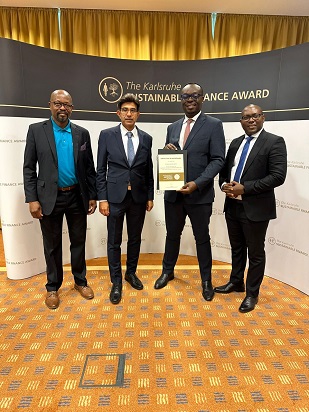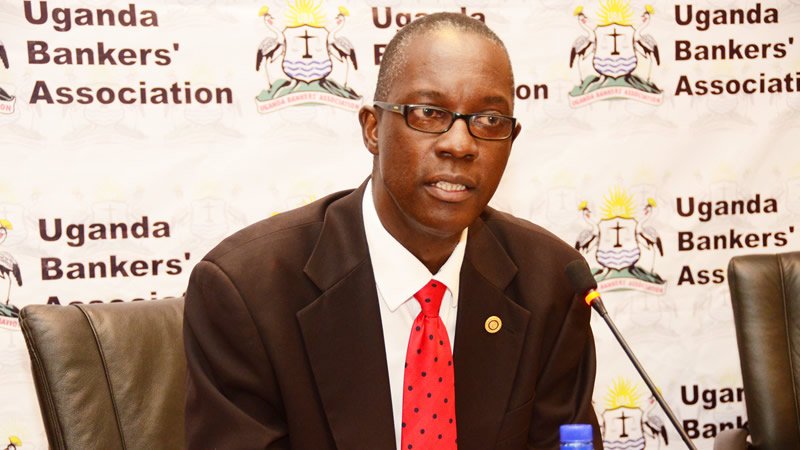PostBank management led by Board Chairman, Andrew Otengo Owiny (L), CEO, Julius Kakeeto (2R) and CFO, Peter Ssenyange (R), pose for a photo with Arshad Rab, CEO, European Organisation for Sustainable Development, after receiving a Certificate of Acceptance to the Sustainability Standards and Certification Initiative. PostBank is now the 3rd bank in Uganda to be admitted to the SSCI – a tool for economic sustainability.
PostBank Uganda, a financial institution that is committed to empowering lives and transforming livelihoods, has today, been enlisted in the Sustainability Standards and Certification Initiative (SSCI) during the launch of the Sustainability Certification Process by Bank of Uganda (BoU) together with the Ministry of Finance and the European Organization for Sustainable Development (EOSD), at Kampala Serena Hotel.
The Sustainability Standards and Certification Initiative (SSCI) is a brainchild of the EOSD intended at delivering a holistic, robust, evolving, and locally sensitive set of standards to make value-driven financial institutions more resilient and profitable.
Mr. Arshad Rab, the Chairman International Council of Sustainability Standards and CEO of the European Organization for Sustainable Development (EOSD), noted that, the SSCI is the world’s most comprehensive framework, that will make our financial sector the driver of building new economies.
“SSCI financial institutions under the patronage of the Bank of Uganda, which itself is embarking on a historic and exemplary sustainability certification journey, will be equipped with a holistic framework to transform the Ugandan economy from a low tech and low value added to a high tech and high value added economy.”
For financial institutions in Uganda, incorporating the SSCI into their strategies would mean deploying an octagon value creation model which encompasses eight modules; Governance, Management, Technology, Business Models, Operations, Products, Stakeholder Relations and Human Capital.
This model engrains sustainability in the soul of the organization.
PostBank alongside Housing Finance Bank become the newest enlisted applicants of the Sustainability Standards and Certification Initiative (SSCI) after the Uganda Development Bank (UDB) and Pride Microfinance.
Julius Kakeeto, the Managing Director/CEO, PostBank congratulated the Bank of Uganda on the launch of the Sustainability Certification Process and Housing Finance Bank for enlisting for SSCI, emphasizing that PostBank has always been a socially oriented bank with focus on social and environmental governance.
“Now, we are venturing on embedding sustainability in our strategy and everything we do. Our first step was the Integrated Financial Report, subsequently enlisting in the SSCI – which we believe will support our transformation in a more resilient and value-driven financial institution,” Kakeeto remarked.
“We look forward to making PostBank a sustainable financial institution, certified by the European Organization for Sustainable Development (EOSD),” Kakeeto concluded.
While making his opening remarks, Michael Atingi Ego, the Deputy Governor, Bank of Uganda (BoU), stated that the launch of the Sustainability Certification Process is in line with BoU’s mandate – to promote price stability and a sound financial system in support of socio-economic transformation in Uganda.
Minister of Finance, Matia Kasaija, closed off the ceremony with applauses to the SSCI applicants; BoU, PostBank and Housing Finance for heeding to his call and the EOSD for accepting the applications.
“SSCI is a mechanism through which the three institutions will transform their modus operandi to deliver higher value to the communities they serve in addition to other stakeholders such as the shareholders,” Kasaija said.
According to the EOSD, the SSCI is currently only available to members who have demonstrated their capacity in adapting new standards and top management commitment to sustainability. In addition, the practical issues for supporting the adaptation process are taken into account.





